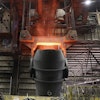
Distribution industry professionals have a lot on their plates with disruption now an expected part of daily operations. Shipments arrive late, skilled labor is hard to find and retain, prices are increasing, and logistics are more challenging than ever. Distribution leaders are looking to improve and adapt their strategies to survive and grow through disruption.
One way distribution leaders can position their companies to stay current on new strategies is through additional education, both for themselves and for employees. Investing in education has immediate and long-term benefits. You and your employees will experience development within your roles, and that will translate to development in the business.
There are several options for education relevant to roles in the distribution industry. For instance, you might choose to pursue a Master of Business Administration (MBA) or a more specialized degree, such as a Master of Industrial Distribution (MID). Both programs are proven to give professionals a lift in their careers and businesses.
The right choice for yourself or an employee will depend on many factors, including the individual’s:
- Experience level
- Acquired degrees and certifications
- Goals for education
Having an MBA gives distribution professionals immediate advantages in terms of operating a business successfully. A specialized degree, such as the MID, dives deeper into more focused categories and facilitates practical learning experiences that are specific to the industry. Both degrees are beneficial to anyone looking to advance their career and knowledge but choosing one over the other is dependent on long term goals.
MID: A Specialized Graduate Degree for Distribution Industry Professionals
A specialized graduate degree, such as the MID, focuses on topics and learning experiences that are central to a specific industry. The MID program is focused on industrial distribution, and it is designed for students to continue working full time as they earn their degree. The program involves online courses, immersive learning experiences, and a Residency Week on campus each year.
For this specialized degree, students focus on industry-relevant topics, such as logistics, supply chain management, and profitability in industrial channels. With a focused approach, students can broaden their view of the industry, gain insights into current trends and future projections, and get more strategic in their existing roles.
Students will bring that knowledge, as well as new critical skills and strategic thinking, back into their roles to help businesses gain an edge and overcome existing challenges. They can put their learning to use immediately, realizing the benefits of their education right away and contributing to growth.
Roles that would benefit from a specialized degree range from new hires to industry veterans. Potential roles include, but are not limited to:
- CEOs, COOs and CFOs
- Presidents and Vice Presidents
- Supply Chain Managers
- Operations Managers
- Account Managers
- Regional, Branch, District and Area Managers
- Project Managers/Engineers
Oftentimes, leaders in the industry pursue the MID as the next step on the ladder of their education and experience. They often have MBAs and are seeking more specialized, focused learning that addresses their industry issues. However, having an MBA is not a prerequisite to obtaining an MID. They have the foundation of operating a successful business thanks to their experience in the industry, and an MID will only deepen and broaden that foundation so they can pursue growth and think more strategically.
MBA: A Degree to Master the Ropes of Business
For individuals who do not yet have an MBA or comparable experience, such a degree program could be a potential option. This degree is not specialized, but it provides a comprehensive, effective and immersive education around essential business principles, best practices, and management skills.
There are several options available for professionals seeking MBAs. For instance, an individual with two years of professional experience could pursue a full-time MBA to assist getting them into that first management position. A professional with 10 years of experience can pursue an Executive MBA to take their career further and develop their leadership skills.
Either way, an MBA is a valuable experience for people who want a broader focus for their education and careers general. It provides a general overview of all areas to give students the foundation they need to further build upon their experience.
Two Paths to Success – Which Is for You?
Both an MBA and MID have benefits students can realize immediately and use to enhance their careers and contribute to growth at their companies. A specialized degree, such as an MID, allows for a deeper focus on complex distribution functions and challenges. In such a program, a student could improve specialization and leadership for roles in sales, supply chain, customer service, logistics, inventory and more. For individuals who already have MBAs or equivalent experience, or for individuals who are already passionate about their roles in distribution, an MID might be the best choice.
At Texas A&M University, both the MBA and MID programs are structured to assist the working professional in adapting with today’s challenges. Choosing a path is dependent on where you see your destination on the map, and that destination is unique to you and you alone.
True educators will help potential students look at their maps, destination goals, and help them see which path is most likely to get them to their goals. Taking any path of higher education is one that will bring you and your company a return on the investment – both in time and money.
Andrew Vernon is the program manager for the Master of Industrial Distribution program at Texas A&M University.






















